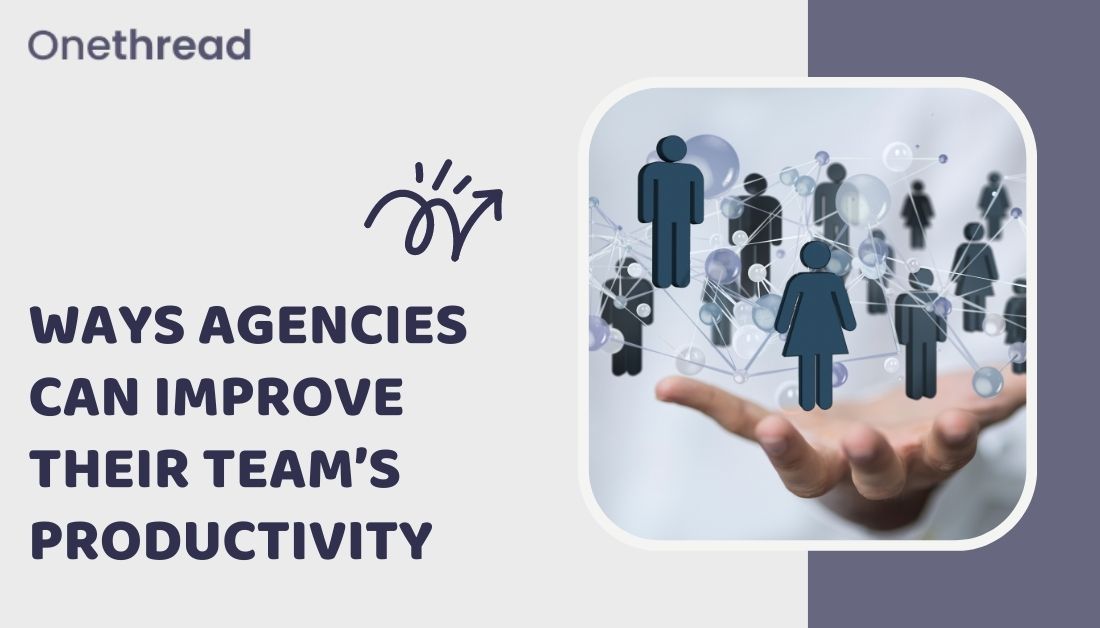No matter how great a team you have, your team members will start to lose focus & efficiency with the increasing workload. Without strong leadership, there are no effective teams.
Leading and managing highly productive teams in a manner that they retain their productivity may not always be that easy.
Here are 5 ways you can lift your team’s productivity to a whole new level!
Know their strengths and weaknesses

You must work on discovering your teammates’ abilities and skills while assigning duties. Identifying their area of expertise is the foundation of building an effective team. Analyze objectives and assess your team’s ability to achieve them. This will assist you in determining who should be working on what, allowing you to achieve more while committing to less. Ideally, you should be able to set team member tasks in a way that the team members’ strengths complement one another.
And always consider listening to your team members and encourage them to share any ideas they may have on what type of work they want to do. It’s easier to achieve high performance when team members are personally motivated to complete a task that plays to their strengths.
Define clear objectives, roles, and responsibilities
Define the collective goals, roles of team members, and responsibilities of your team. Then you can ensure stability, coherency, and understandability within the workforce.
Companies pivot from one idea to another and this phenomenon is quite common among startups. Also in recent times, companies tend to change several policies, like working from home, several working days, etc, on short notice. Teams must be aware of the “what” and “why’s” of these changes. They must also have the company’s vision and goals at the forefront of their minds as it helps make decisions in the company’s direction. To drive great execution following a good vision, you can consider using a framework like OKRs.

These can be achieved by reminding and discussing matters concerning the vision and goals regularly. Teams must also discuss roles and define boundaries amongst each other. This does not just ensure understanding of everyone’s responsibility and commitment to the mission statement, it also rekindles a motivation factor at times of confusion, uncertainty, and frustration.
If such coordination cannot be achieved by the team members, it is responsible for agencies to bring in a skilled neutral facilitator to mediate.
Provide time for relaxation
Employee efficiency cannot be improved if they have been working nonstop with no breaks. Instead of being efficient and creating excellent work, team members are becoming hurried to meet deadlines and just get the task done. They may even become exhausted, which can affect long-term motivation.

You should encourage your teammates to take a break and have their ‘me time’ from time to time. You might also go out of your way to provide games at your office for them to play during their downtime. While this may appear to be contradictory, it helps employees to recharge so they can focus better when they return to work.
During this age of remote work, stay attentive to how much time teams are spending taking virtual meetings and make sure only the necessary meetings remain on their calendars.
Exchange constructive feedback for learning and accountability

Feedback is a crucial component of continual progress in a team. It is important to share feedback so that the team members know where they are at with the project and develop accountability. Giving meaningful feedback that would help with the quality of the project could effectively enhance your team’s efficiency. You must make critical comments confidently and also ensure that the team members are taking them as advice to improve their performance. Your team members may want more direction from you than just feedback, so offer to assist them. This fosters an open communication culture, making collaborations simpler. You can try setting up a 360 manager review system to collect feedback, consolidate, and communicate how you plan to use them.
Peer review is also hugely advantageous when offered and accepted correctly, such as during group/team meetings when work can be evaluated and reviewed.
Use a project management tool to maximize team productivity
Project management software is available to consolidate all information and group conversations into a single app that all team members may view. It is designed to organize your workload and guide you to prepare you for the next phases of a certain activity and achieve deadlines.
For example, tools like Azure Cost Management can help you keep track of your cloud expenses and optimize costs, ensuring that financial resources are managed efficiently.

Onethread is a great option for you to get started with. It is a simple and free project management software that has features including Gantt charts, group messaging, and a shared calendar with tasks mentioned under dates so that you do not miss a deadline. With the help of these features, teams may develop objectives and milestones, which increases productivity and motivation across the board.
Integrating API SMS can further enhance productivity by enabling instant notifications and updates, ensuring team members are always informed in real time.
